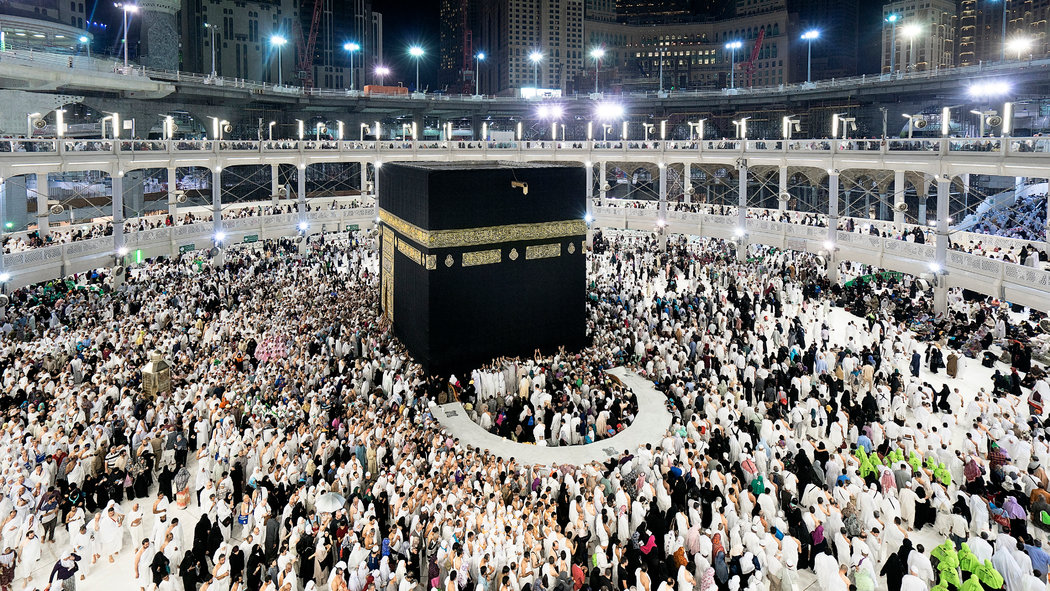
Muslims to wait a year for Haj as virus prompts Saudi curbs

Muslims around the world hoping for a once-in-a-lifetime journey to Mecca to perform the Haj will have to wait until next year, after Saudi Arabia drastically curtailed the pilgrimage due to the coronavirus pandemic.
The kingdom said late on Monday that only a very limited number of pilgrims would be allowed to perform the Haj in Mecca from among residents of various nationalities already inside the country.
While the decision to drastically curb this years Haj was largely expected, it remains unprecedented in Saudi Arabia’s nearly 90-year history and effectively bars all Muslims from outside the kingdom from travelling there to performing the pilgrimage.
It’s a blow to those who’ve waited and saved money for years to afford the journey. The Haj is not only a requirement for all Muslims to preform once in a lifetime, but it is also a chance to wipe away past sins and connect with Muslims from all walks of life.
The Haj typically draws 2.5 million people from inside Saudi Arabia and around the world. Its a profound experience, with the faithful standing should-to-shoulder in prayer, often weeping, their palms stretched toward the sky for five intense days of worship around Mecca.
Each country is allocated a specific quota of Haj visas according to its population of Muslims, with Indonesia having the largest contingency at close to 2,21,000. In countries like Egypt, Pakistan and India, securing a slot can require hefty fees, a connection to a local official or simply years of patience.
Pakistani officials said Saudi authorities had been in touch to inform them about the decision to limit this years Haj. Pakistan usually sends around 1,80,000 pilgrims to the Haj each year. Instead, Pakistan said its diplomats already in Saudi Arabia will represent the country during the pilgrimage this year, which begins at the end of July.
Saudi Arabia’s borders have been shut to foreigners since late February as the kingdom tries to slow down the spread of the virus. The government suspended the smaller year-round umrah pilgrimage earlier this year, imposed a nearly three-month-long 24-hour curfew in Mecca, shuttered mosques during the holy month of Ramadan and restricted businesses.
Still, Saudi Arabia has one of the highest rates of infection in the Middle East, with more than 161,000 confirmed cases so far, including 1,307 deaths. The virus causes mild to moderate symptoms in most people, who recover within a few weeks. But it is highly contagious and can cause severe illness or death, particularly in older patients or those with underlying health problems.
The Saudi Ministry of Hajj said the decision to curtail the Haj was aimed at preserving global public health because of the risks associated with large gatherings. The government said its top priority is to enable Muslim pilgrims to perform the Haj safely and securely. It defended its decision on religious grounds, as well, saying that the teachings of Islam require the preservation of human life.
The kingdom has faced smaller epidemics like the MERS virus and had taken precautions by barring pilgrims from African countries striken by the Ebola virus in recent years. There have been major disruptions during the Haj in past years, including a deadly stampede and a crane collapse in 2015 that killed more than 2,500 people. In 1987, Saudi security forces killed more than 400 people, mostly Shiite Muslims, in a clash sparked by Iranian pilgrims protesting during the Haj.
The most dramatic closure of the Grand Mosque in Mecca, however, took place in 1979 when religious extremists stormed Islams holiest site, which houses the cube-shaped Kaaba that Muslims pray toward and circulate during pilgrimage. Thousands of worshippers were trapped inside and hundreds were killed in a siege that lasted two weeks.

